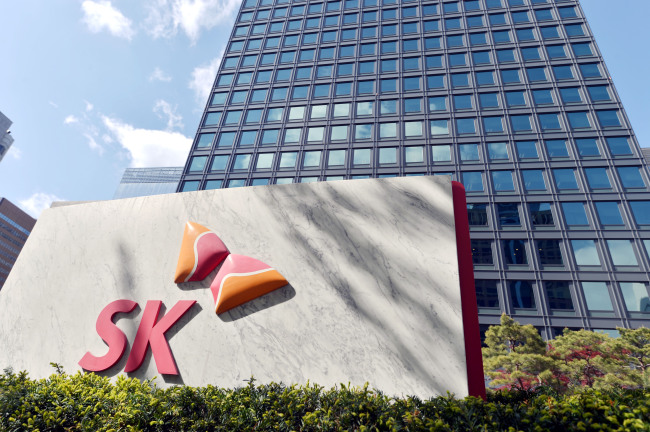The Boardroom
Chaebol firms owned by heirs depend more on intragroup deals
[THE INVESTOR] Chaebol companies owned by potential heirs from the business-controlling family make easy money, relying on contracts from affiliate companies, a phenomenon the latest data shows is strengthening despite increased scrutiny.
According to an analysis by the Fair Trade Commission of 47 large conglomerates and their 1,274 affiliate companies, intragroup trade accounted for 59.4 percent of all sales at companies wholly owned by heirs as of the end of 2015, up 7.6 percent from a year earlier.
 |
SK Group showed the highest level of intragroup trade among chaebol firms in Korea. |
The share of intragroup deals at companies more than 20 percent owned by the controlling family, including heirs, also rose from 7.6 percent to 9 percent during the same period.
“Our findings point to a positive correlation that continues to exist between equity stakes held by the controlling families and the dependency on intragroup trade,” said Kim Jung-gi, a FTC official, at a press briefing.
When heirs are involved, the correlation is stronger, the FTC study shows.
On average, companies 20 percent or more owned by the heirs generate 12.5 percent of sales from intragroup contracts. The ratio rises to 25.5 percent when the heir’s ownership of shares exceeds 50 percent. When a company is entirely owned by those in the succession line, intragroup deals take up near 60 percent of all sales.
The figures for companies owned by the controlling families, not just by the heirs, stand at 9 percent for the 20-plus percent owned companies, rising to 34.6 for those wholly owned.
The findings come despite increased public criticism and legal scrutiny of the inappropriate, if not unlawful, practices of usurping corporate opportunities for the benefit of chaebol families.
Corporate governance activists claim that chaebol groups such as Samsung, Hyundai and SK use intragroup trade as a way of transferring wealth to heirs without paying the country’s hefty inheritance taxes.
Their modus operandi: Set up a company under the name of the children -- for example, an information technologies solutions provider or a logistics company -- and channel a big chunk, if not all, of the group’s contracts to this company. When profits sharply rise, the company makes a stock market debut, delivering a windfall for the children which own it.
Thursday’s data shows that SK, Posco and Taeyoung have the highest level of intragroup trade as a percentage of total sales, at 24.2 percent, 18.8 percent and 18.5 percent, respectively.
By amount, the top three are SK, Hyundai Motor and Samsung groups.
Inter-affiliate deals amount to 33.3 trillion won at SK, while the figures for Hyundai Motor and Samsung stand at 30.9 trillion won and 19.6 trillion won.
In 2014, Korea introduced a ban on intragroup deals, targeting listed companies more than 30 percent owned by the parent group’s controlling family. For non-listed companies, the bar is lower at 20 percent. The rule, however, is criticized as failing to meet the stated goal of curbing the practices because of lenient punishment.
By Lee Sun-young/The Korea Herald (milaya@heraldcorp.com)








